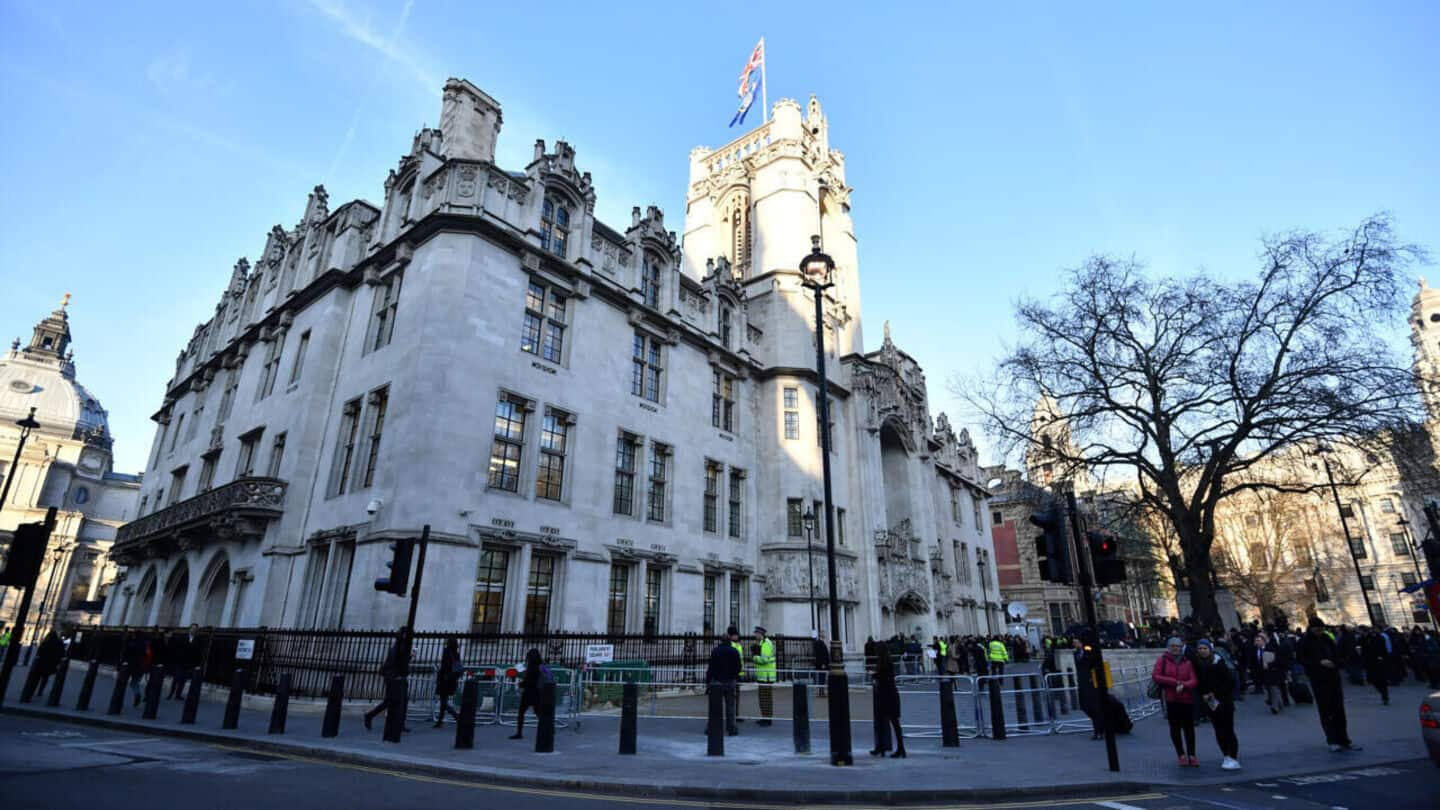
'What's a woman?': UK Supreme Court to rule on definition
What's the story
The United Kingdom Supreme Court will rule on Wednesday in a legal dispute that focuses on the definition of a woman.
The case stems from a long-running dispute between a women's rights group, For Women Scotland (FWS), and the Scottish government over its gender representation laws.
The contention is whether transgender women with Gender Recognition Certificates (GRCs) fall under the 50% female quota required for public boards.
Legal implications
The crux of the dispute
At the heart of this case is the definition of "woman" under the 2010 Equality Act.
FWS argues that divorcing sex from its "ordinary meaning" could have far-reaching consequences for sex-based rights and access to single-sex spaces, including restrooms and hospital wards.
They claim current definitions dilute legislation aimed at ensuring female representation, potentially impacting a number of facets of UK law.
Legal journey
Background of the case
The issue first reached the courts in 2022, when FWS successfully challenged the Gender Representation on Public Boards (Scotland) Act 2018 for including trans women in its definition.
The Court of Session held that the definition of a woman in this act was unlawful as it concerned matters beyond Scottish Parliament's legal competence.
The Scottish Government then removed this definition from the act and published revised statutory guidance.
Government's stance
Revised statutory guidance and subsequent challenge
The revised statutory guidance said that under the 2018 Act, a person with a GRC recognizing their gender as female had the sex of a woman.
However, FWS challenged this revised guidance on the grounds that sex under the Equality Act referred to its biological meaning.
They argued that government was overstepping its powers by effectively redefining "woman," but their challenge was rejected by the Court of Session's Outer House in December 2022.
Awaiting judgment
Supreme Court appeal and potential implications
The Inner House upheld the decision in November 2023, but granted FWS permission to appeal to the Supreme Court.
The appeal was heard in November 2024, and after two days, the judges said they would "take time to consider" before issuing their judgment on April 16.
Trina Budge of FWS warned that failure to tie the definition of sex to its ordinary meaning "could conceivably comprise 50% men and 50% men with certificates, yet still lawfully meet...targets for female representation."